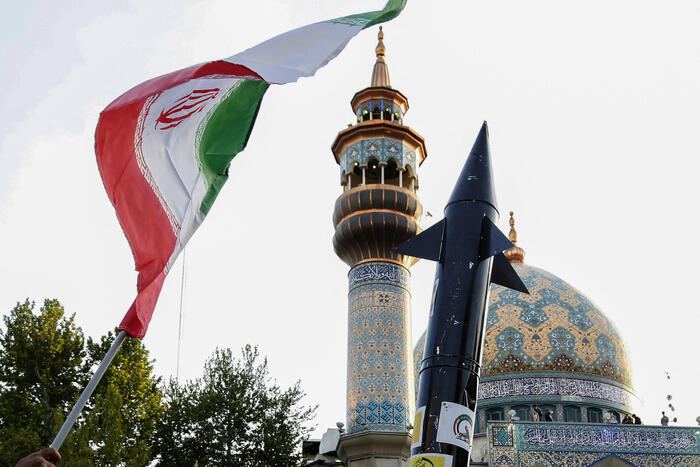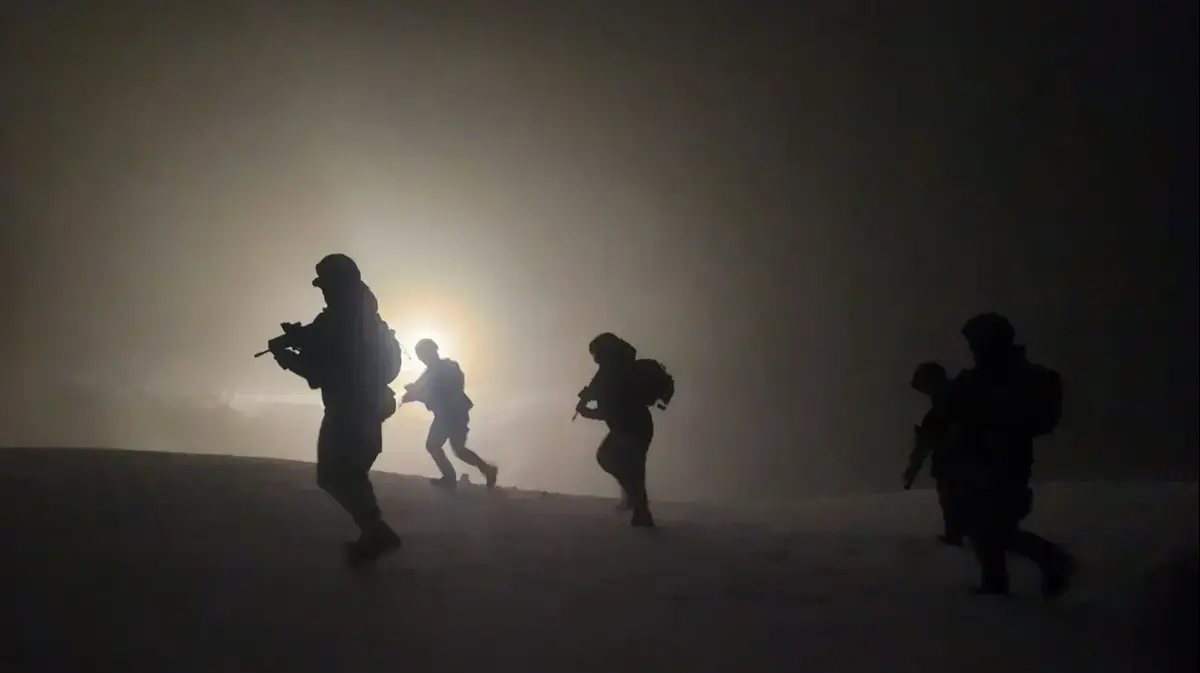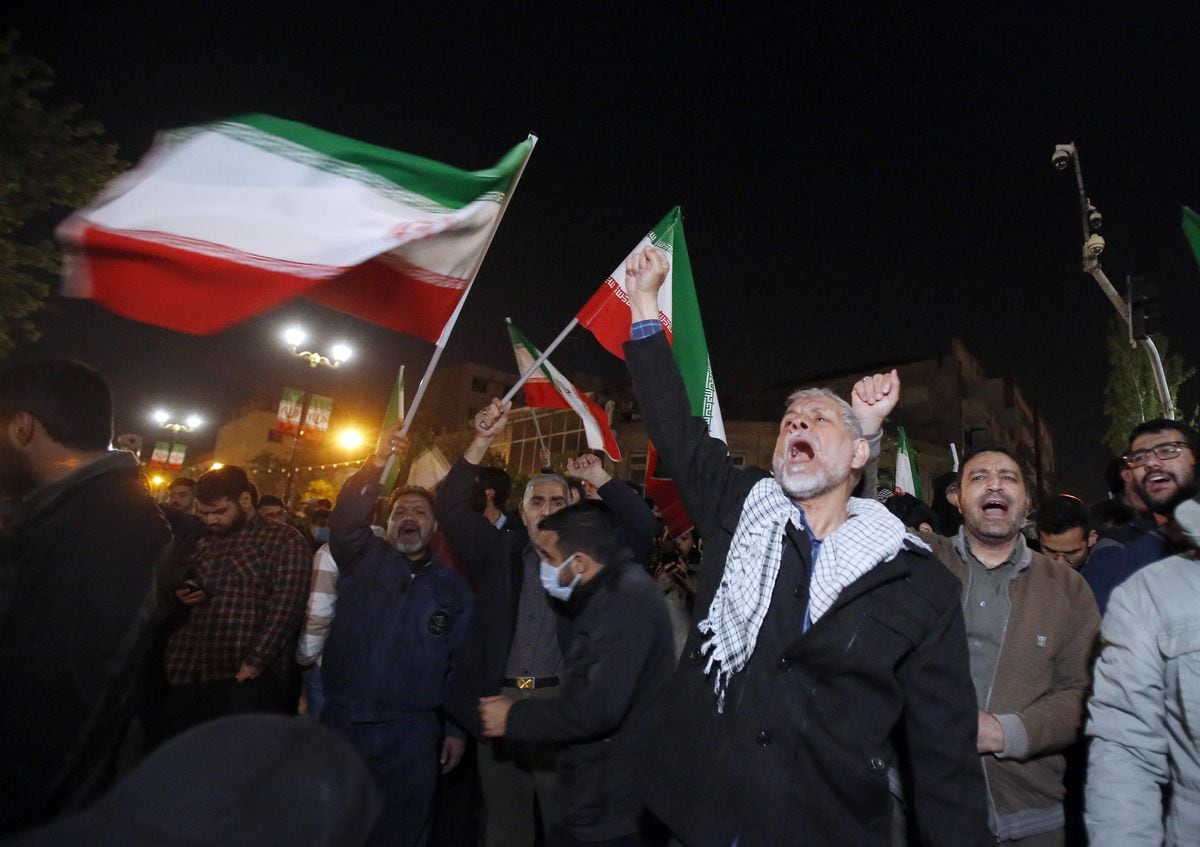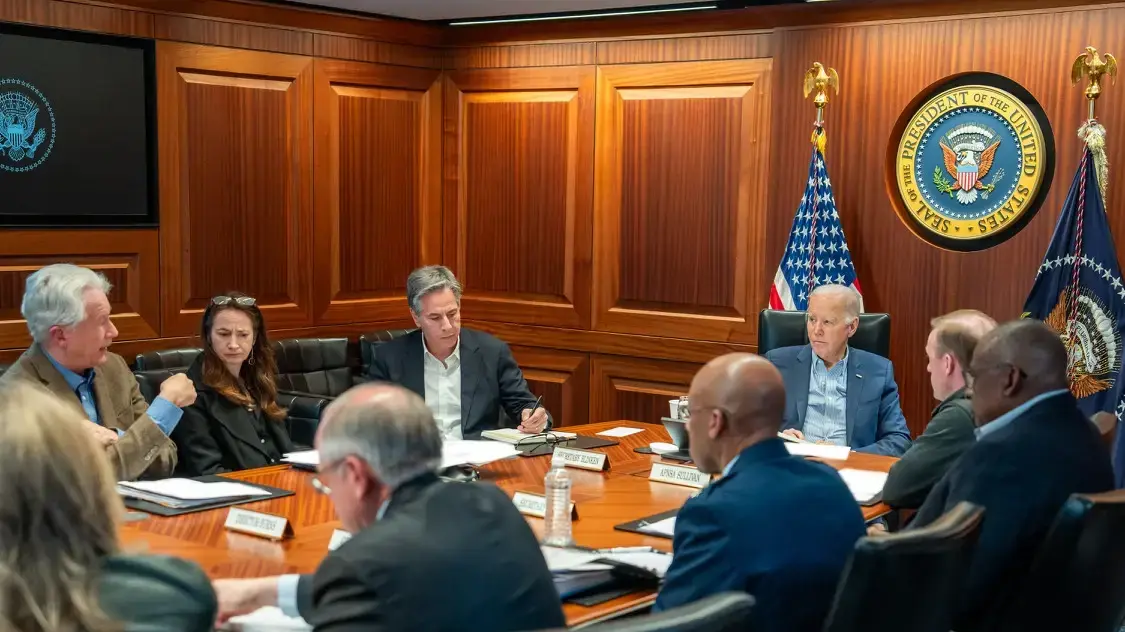The prevailing view regarding Arab countries is that the stability of the regime is good for us. • The securityists, who think so about the Palestinian Authority, allow Fatah and Hamas to continue the violent struggle against Israel.
For an entire generation, the dominant school among security circles in Israel is that governmental stability must be preferred among the Palestinians, even when it means strengthening the enemy. But the continued flow of money to Gaza through Qatar means that Hamas - a terrorist organization that exists to eliminate the State of Israel - continues to control Gaza unhindered. It is building its power, strengthening its ties with hostile regimes such as Turkey, Iran and Qatar, and with terrorist organizations such as Hezbollah.
Prevents any possibility of assistance to the state. Hezbollah members in Lebanon // Photo: AFP
The people of Gaza continue to be subject to tyrannical and cruel rule that impoverishes them and intentionally endangers their lives, because it is more important to him to eliminate Israel than to keep the people he claims to represent.
The same logic exists with regard to the Palestinian Authority, ie the Fatah regime in Judea and Samaria. True, everyone admits, Fatah finances the salaries of terrorists and incites terrorism against Israel. It strengthens elements hostile to Israel among Israeli Arabs and waged a political war against Israel in the international arena, including in the International Criminal Court in The Hague. It is also true that only a month and a half ago, the PA announced the cancellation of all the agreements it signed with Israel. But still, say the expert security people, this is our partner for peace and besides, it is a stabilizing factor, and stability is good.
But those security personnel are not the only ones who hold this view. Their American counterparts are in the same conceptual boat. The place where Americans have been realizing this perception most prominently in recent years is Lebanon. After the Second Lebanon War, and despite the direct assistance provided by Hezbollah's war effort against Israel, both the local government and the military benefited from a significant increase in American assistance. This is how we build an alternative to Hezbollah, they said then and today. The fact that the terrorist organization exists and is strengthened under the auspices of the same alternative does not really impress the Pentagon.
It is also possible without Assad
What should have challenged this perception is the war in Syria. Before the Civil War, for decades both Israel and the United States believed that the Assad family regime was the least bad. True, the father and son supported Hezbollah and were protégés of the Russians and Iranians, but they were stable. And thanks to their stability, the generals in the Kirya and the Pentagon said, Sign a piece of paper with the word "peace" written on it, in exchange for the Golan Heights.
Security experts have warned that if the Assad regime is ever undermined, Israel will pay a heavy price. But when it did happen, Israel was not harmed, but strengthened. Before the war, Assad also threatened Israel through Hezbollah, sending Palestinian "demonstrators" from refugee camps in Damascus to cross the border every year in "return marches" with an unequivocal war threat. Since the war in Syria began, and the president has had to fight for his life and regime, not only has he had no time to launch Hezbollah against us, he has been abandoned by the Palestinians whom he oppressed and murdered, or sent to Lebanon.
From an intelligence-challenging country due to the stable and centralized rule of the Assad dynasty, Syria has become an open book. Syrian elements were found to answer every question of Israel that were willing to provide an answer in exchange for humanitarian and other aid. Today, according to many publications, Israel has very impressive intelligence control over Syria.
Today, Lebanon is not necessarily on the brink of civil war, but it is in an economic and social collapse. The value of the currency has fallen by sixty percent, its level of credit is lower than that of Venezuela, and the capital markets (including the International Monetary Fund) are closed to it. The Arab world refuses to help as it did yesterday due to Hezbollah's control of the government and the army. Due to US sanctions and the corona crisis, Iran is also not transferring money to Hezbollah. China is unwilling to accept responsibility for the failing state, and the Trump administration is closing Lebanon to Syria economically, through sanctions it imposed on the regime in Damascus.
The only factor today capable of rescuing the Hezbollah-controlled Lebanese regime is the Pentagon, and its leaders give the impression that they are indeed interested in doing so.
Last week, the commander of the Central Command - the US military command entrusted to the Arab world - said that the Americans understand that the Lebanese army and government have no choice but to come to terms with Hezbollah. According to General Kenneth Mackenzie, "Hezbollah remains a problem. We recognize that it is there (in Lebanon). We would be blind if we said we do not see it there. We understand that the local people in Lebanon have to make concessions as a result."
In other words, for the Pentagon it would be fine if the price of continued American support for the Lebanese government and army would be to save Hezbollah and perpetuate its control over the country.
Mackenzie also recently reiterated the Pentagon's commitment to providing assistance to the Lebanese army. And of course, if the Lebanese army is given planes, cannons, mortars and a variety of other means, how can the State Department not provide other economic and humanitarian aid?
If the Lebanese government and the Lebanese state collapse - and this is already happening - there will be very many elements in Lebanon who will want Israel's assistance and will be willing to pay for it. Hezbollah, which already sees the end approaching if salvation does not come from Washington, will not go to war against Israel when the entire Lebanese people accuse it of economic collapse and when Nasrallah does not even have the means to pay its terrorists.
Do not interfere with the collapse
The instability of hostile rule does not endanger us. It endangers the hostile government and benefits us. And that brings us to the Palestinians.
Last weekend, Defense Minister and Deputy Prime Minister Bnei Gantz extended a freeze order imposing criminal sanctions on Palestinian banks holding accounts of terrorists and their families budgeted by the Palestinian Authority. This means that Gantz allows the PA to continue to transfer funds to terrorists and their families. He justified his act by saying that the move was supported by all the security forces (and he is at the forefront).
All the security forces, of course, are afraid of the phrase "collapse of the PA". But the fact is that like Syria, Palestinian society has all kinds of people and groups. Today, because the PA on the one hand and Hamas on the other hand are directly and indirectly supported by Israel in the name of stability, Hamas and Fatah are the strongest elements in their arenas. Instead of rebelling against them (and getting closer to Israel), Hamas and Fatah leaders are free to invest their full energy and resources in their struggle against Israel - whether in building their power, whether in managing political systems and the like.
One can understand the attraction of security factors to stability. But we do not live in a stable world. The world is changing before our eyes. Whether we like it or not, our enemies are collapsing. We should not disturb them.
For more opinions by Carolyn Glick














/cloudfront-eu-central-1.images.arcpublishing.com/prisa/EXJQILQR5QI7OMVRTERD7AEZAU.jpg)